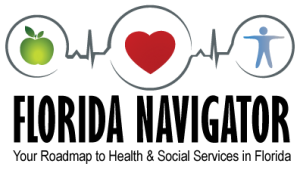By Robert Goodman, MSW
Caregiver Basics
Are you a caregiver? If you are helping a spouse, parent, child, or other relative or friend perform activities of daily living (eating, walking, bathing, dressing, grooming) then you are a caregiver. Family caregivers are the backbone of the nation’s long term care system. November is National Caregivers Month and Alzheimer’s Month. Many caregivers are caring for someone with Alzheimer’s or other types of dementias.
The first rule of caregiving is to take of yourself. If you are not healthy, then the person you are caring for won’t get the care he/she needs. Take breaks (even walking outside for 5 minutes), exercise, talk to a friend, eat healthy, and reduce stress. Caring for yourself makes you a better caregiver.
The Alzheimer’s Association recommends several things that a caregiver needs to do to be an effective caregiver:
1. Understand what is going on as soon as possible
2. Become an educated caregiver about the illness or disability of your loved one
3. Accept changes as they occur
4. Make legal and financial plans
5. Give yourself credit, not guilt
6. Visit your own doctor regularly
It is very important to know about community resources. People hear this term and immediately think of people who are sick, disabled, or poor. But community resources include government services such as offices that provide driver’s licenses, homestead exemptions, voter registration, or other government or non-profit agencies that help everyone in the community. They also include services for people who might be sick, disabled, or poor.
There are many agencies and organizations in our area that provide support and services for caregivers. There are support groups where members share their concerns, ideas, and frustrations relating to being a caregiver.
There are ten indicators of caregiver stress according to the Alzheimer’s Association: denial, anger, social withdrawal, anxiety, depression, exhaustion, sleeplessness, irritability, lack of concentration, health problems. If you are experiencing any of these symptoms on a regular basis it is time to ask for help from a doctor or mental health professional.
If you need help, ASK FOR IT! There is no shame in asking for help. That help might include emotional support (counseling), respite, or hiring another to share the caregiving duties.
In a previous column I discussed support groups. These are important to help you learn to be a better caregiver. Several organizations sponsor caregiver support groups. These include: Alzheimer’s Association, American Cancer Society, American Heart Association, National Parkinson’s Foundation, and others.
Resources for Caregivers:
For general information on services in the community call:
• Information and referral 211
• Area Agency on Aging (Elder Helpline) 561-684-5885


